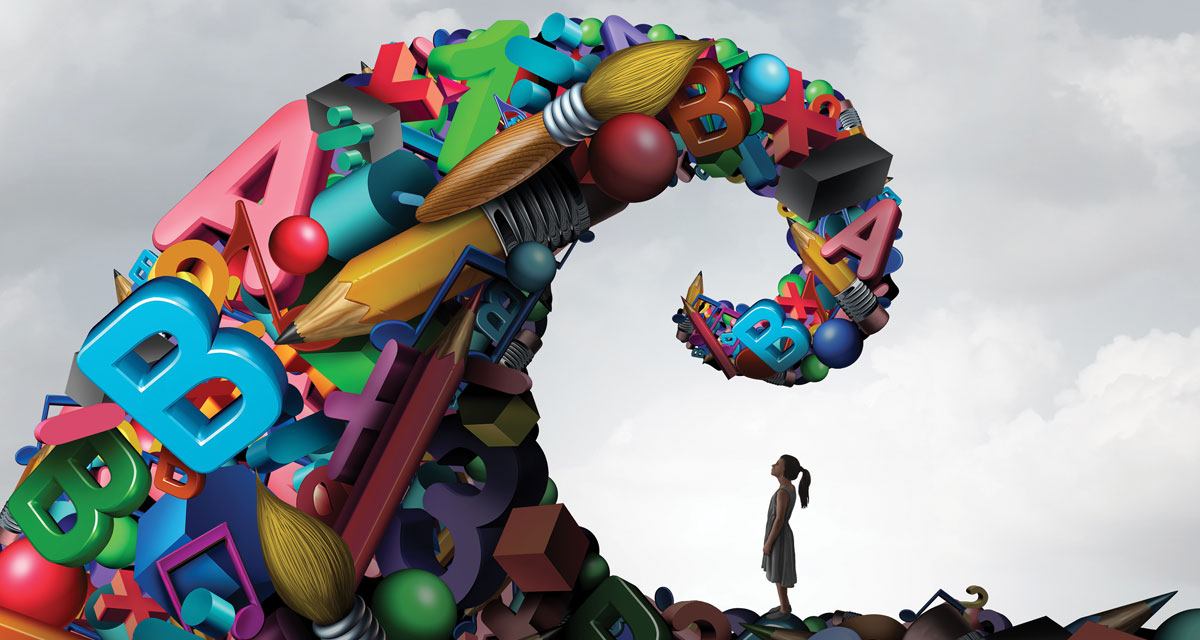Imagine meeting an exceptionally intellectual individual who is creative, inventive, empathetic, and undoubtedly impactful in their work, but has intense difficulty with reading, recognizing letters and numbers. Approximately 40 million adults are dyslexic. Dyslexia is a learning difference that causes difficulty in reading, writing, and working with numbers. When it comes to looking at letters on a page, dyslexics describe what they see as the letters and numbers “bouncing around” and flipping upside down. Their condition also makes it difficult to recognize the shapes of letters, so they do not perceive words and numbers the same as non-dyslexics.
But it does not end there.
There are many forms of dyslexia: dyscalculia—difficulty learning or understanding math; dysgraphia—difficulty writing or forming letters; dyspraxia—a speech disability that affects the ability to pronounce words correctly. Some of these exist alongside dyslexia, if not independently. People who grow up dyslexic suffer a great deal, especially in the conventional world of academia. It is later, down the line, when they eventually discover the extraordinary abilities they possess because they have dyslexia! Here’s how dyslexics can thrive in the world.
Peripheral vision
This type of vision refers to a strong perception of what we see on the sides while looking straight ahead (for instance, looking straight ahead at a bookshelf while also noticing your handbag right next to you). Common dyslexic folks may not be able to focus on the center image too well, but they have a vivid perception of what they see around that central image. This may even happen when they read. They have an uncanny gift of seeing the picture—or abstract idea—as a whole, then putting together the details. They draw connections between ideas very well, which makes them excel at mechanics, mathematics, electronics, design, and computer science. It is a known fact that over 50 percent of NASA employees are dyslexic! Many other dyslexics have artistic abilities, such as sewing and making clothes from scratch, stage production, drawing, and painting.
Pattern recognition
Another strength for dyslexic people is their heightened ability to learn visually. When looking at textbooks at school—science books, especially—they normally have difficulty deciphering the text, but use their intuition and strong analytical skills to perceive the patterns of charts and graphs and to interpret them as “books.” Some dyslexics confess that in lieu of actually reading the text, they learn to memorize the shape of letters, thereby discerning the words. They are abstract thinkers and learners and comprehend the idea and concept of things, rather than merely labeling words or concrete facts. Some even comprehend novels by finding ideas through dialogue or a theme throughout the book. This skill helps them view life and situations from multiple perspectives…perhaps this is where their strong empathy skills come into play!
Empathy
Dyslexics are strongly empathetic and can put themselves in other people’s place and feel their emotions as their own. Their empathy is a product of their struggles in schools that implement conventional learning styles, dealing with a learning difference, and not feeling “up to par” with their classmates. They can relate to people who may feel like “outcasts” for any reason, because they have felt the same.
Internal drive
Dyslexics know they must work harder than those without dyslexia to get on the same level as their peers, if not higher. Many of them eventually learn the gifts of their brains, which they have because of their condition. When they learn to tap into their unique abilities, they exercise them while growing determined to be exceptional and influential in whatever career field they choose. Even when they feel accomplished, they will still have that natural internal drive that makes them want to continue growing and learning.
Dyslexia is not a disability, but more of an ability. Conventional doesn’t have to be the way to go with these folks, but helping them learn how to work around their shortcomings and use their natural talents comes with great reward and prosperity!























